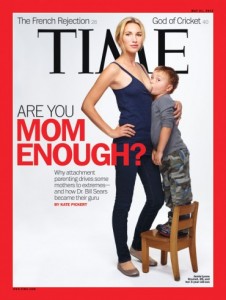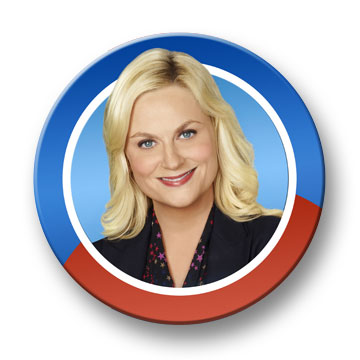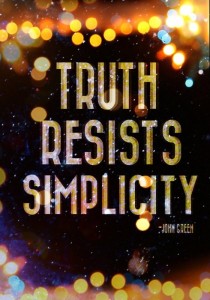 TIME Magazine’s cover package this week feeds into the antagonistic, Mommy Wars culture that has become rampant in the United States.
TIME Magazine’s cover package this week feeds into the antagonistic, Mommy Wars culture that has become rampant in the United States.
We live in a society dominated by metrics purported to determine merit, grades and standardized test scores, sales figures and evaluations. And somehow that mindset trickles down to parenting. Turning parenthood into a competition starts early. “How old is she? How many hours is she sleeping?” “Did you give birth naturally?” Mommy bloggers post about all the minutia of babyhood in a way that makes it seem like an accomplishment.
Dr. Sears coined the term attachment parenting, and brought some of its practices to light in mainstream American society. It makes me really sad to see his work equated with competitive parents who brag about how long they co-sleep or judge others for having their baby on a schedule.
However, the media seems obsessed with the idea that attachment parenting is about mommy martyrdom. Though there are AP moms who judge other people very harshly, that’s more about them and the culture of competitiveness in our society. If you never leave your toddler or preschooler in a nursery, with a babysitter, or even with your spouse, that’s a personal choice, not one that has been dictated by the philosophy itself.
I read The Baby Book after Kate was born, and I was already naturally adopting those principles based on my own instincts and philosophy of childrearing. I found his writing warm and flexible, for example: “Do the best you can with the resources you have – that’s all your child will ever expect of you… Use these as starter tips to work out your own parenting style – one that fits the individual needs of your child and your family. Attachment parenting helps you develop your own personal parenting style.” (from What AP is.)
Motherhood is hard work. In our own human effort to build ourselves up and find meaning in our lives, we turn our choices into accomplishments, our children into gold stars that show our worth. Whether we are bragging about how many hours they slept alone in their crib or how many kids share our bedroom, we are getting it wrong every time we find our value in life that way.
We are all different, and so are our children. There is no single approach that will work for all families or personalities. That’s not to say that we ought not ever talk about our choices or seek encouragement, we all need a little help sometimes. But we need to see our own choices as doing the best we can, with what we have, where we are and give our mommy-neighbors the benefit of the doubt that they are doing the same.


